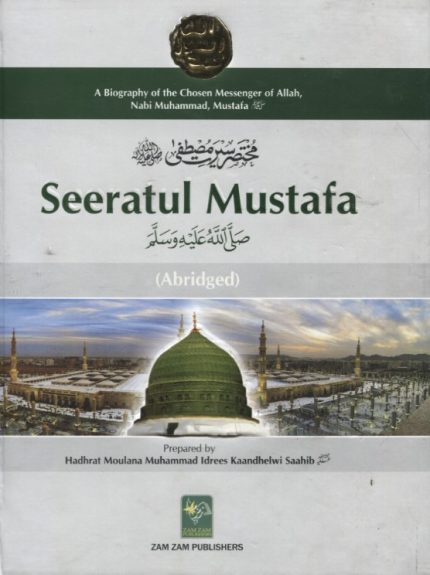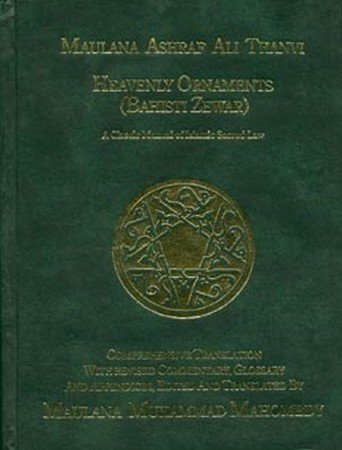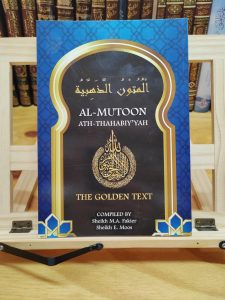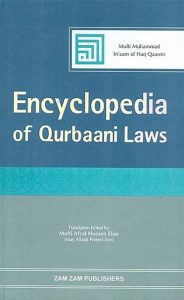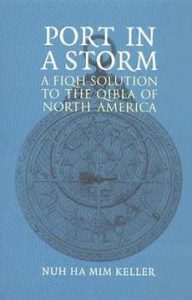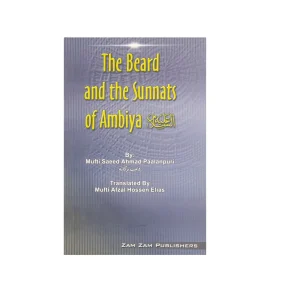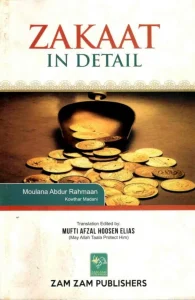Beshti Zewar (Heavenly Ornaments)
R245.00
Heavenly Ornaments (Bahishti Zewar) is a comprehensive manual of Islamic sacred law (Hanafi Fiqh), originally written in Urdu with Muslim women in mind. It serves as a guide encompassing religious and temporal information, covering various aspects of Islamic practices and daily life. While initially aimed at women, the book also provides valuable insights for men and scholars.
Author:
Maulana Ashraf Ali Thanvi
Editor:
Zam Zam
Category: Fiqh & Usoolul-Fiqh
RELATED PRODUCTS
Al-Mutoon Ath-Thahabiyyah (The Golden Text)
R320.00
A collection of mutoon or concise texts covering several subjects. The book includes the Arabic and Engish Translation and is a must-have for all students and madaris.
- Aqeeedah or Islamic Belief
- Umm al Barahin
- Aqeedatul Awaam
- Jowhara al- Tawhid
- Manthumah al-Tafsir
- Al Bayquniyyah poem
- Nukbatul Fikr
- 40 Hadith of Imam Nawawi
- Al-Waraqaat
- Safinatun Najah
- Matn of Abu Shuja
- Al-Rahbiyyah
- from Safwatu Zubda
Encyclopedia Of Qurbaani Laws
R30.00
Truly as the name suggests the book has literally hundreds of rules and laws. Well researched and put in the place. Laws pertaining to all aspects of qurbani expounded. Rules concerning the age, eye, hair, legs meat, foot, movement, skin, slaughtering, butcher, aids, workers and rope have been detailed. The history, significance and important of Qurbaani are stated. Qurbaani and partnership, Qurbaani of the poor of the wealthy, of defective animals at various stages are stipulate.
A book to be studied by all venturing to make Qurbaani and a useful text book for the scholars.
Sending Money And Making Qurbaani In Another Country.
When Qurbaani is compulsory upon a person, it will be valid for him if he sends the money to another country and tells somebody to perform the Qurbaani. It will be valid for him to do it in such a way. There is no dislike regarding this in the light of Shariah.
Port In A Storm
R450.00
The Beard and the Sunnats of the Ambiyaa
R20.00
This book discusses the significance of maintaining a beard and other Sunnah practices of the Prophets (Ambiyaa), such as trimming the moustache, clipping the nails, removing hair from under the arms, shaving pubic hair, and using a miswak (toothstick). It provides proofs from Islamic sources to explain the laws of these practices.


